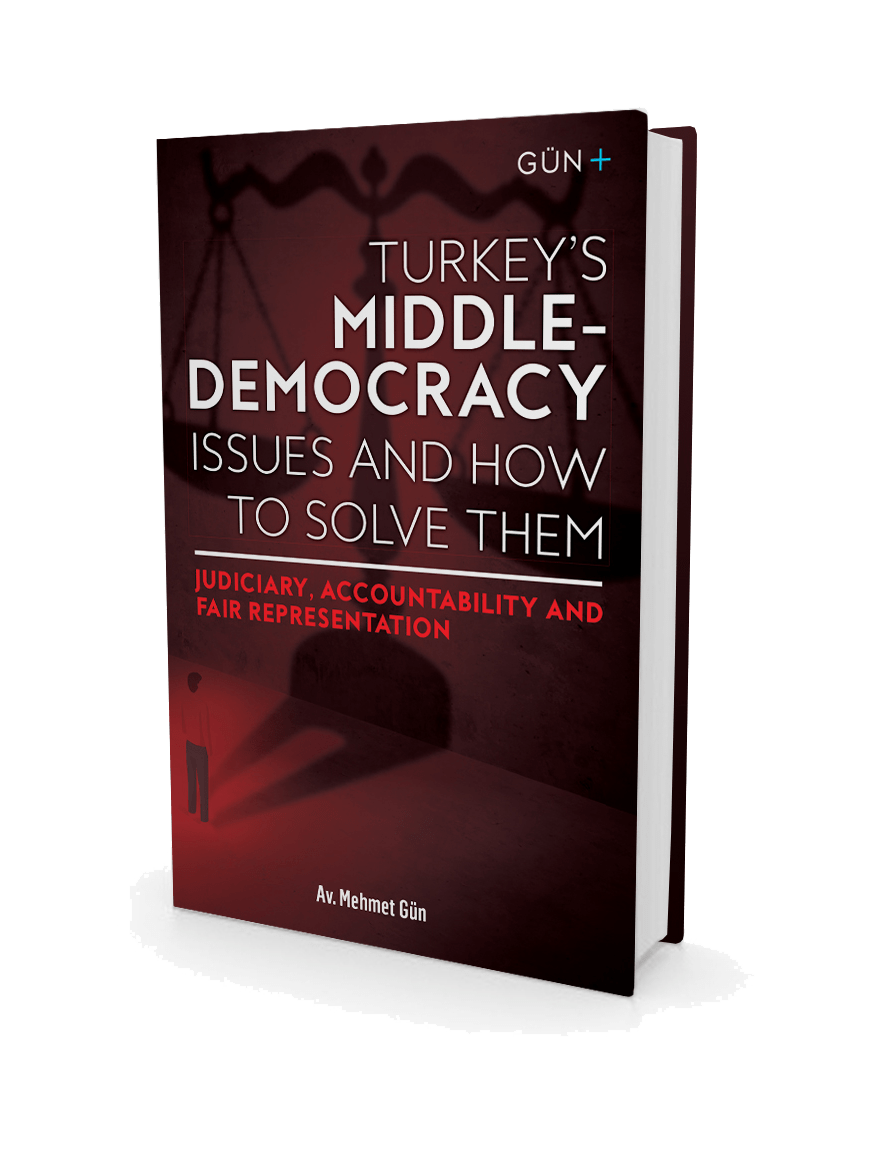Turkey’s democracy is backsliding – but what is the cause and how can we stop it? Can the strengthening of the rule of law and Judiciary be the key to unlocking Turkey’s potential, and even that of other European countries?
“Gün’s take on the country through the concepts of law, economy and philosophy brings a fresh breath to the literature.”
Ece Temelkuran

2 Minutes with Mehmet Gün
“It takes 4 steps to transform Turkey’s democracy and economic prospects – but the first and crucial step is the rule of law…”
An Effective Judiciary
A country’s judiciary has a crucial role to play in how it is run. If it is independent of political influence, well-managed and properly resourced, it can be a vital tool in holding the government to account. At the moment, Turkey’s judiciary is unable to do this. As a whole, the system cannot work effectively enough and there is a large backlog of cases. In addition, current rules allow the government to exercise too much power over the judiciary and it is difficult to hold them to account. As such, public trust in the judiciary is currently very low.
In order to improve our country’s judiciary, I propose:
- Creating a Supreme Authority of Justice
- Creating independent organisations for Judges, Prosecutors and Lawyers
- Creating a Supreme Court and
- Introducing a new court for handling cases concerning public servants
- Improving procedural laws and implementing timeframes on court decisions
- Reintroducing interrogation courts
Accountability and Transparency
Accountability and transparency are fundamental principles of the law, and these concepts have a lot to offer in wider society too. At present, professional organizations with public institution status and political parties lack the standardised rules and systems to make competition between different points of view fair or representative.
The following key changes could help make the system fairer for everyone, and help the Turkish people feel that they are being fully represented:
- Enact the General Administrative Procedure Rule
- Abolish pre-permission conditions for prosecuting members of the judiciary
- Check the powers of public prosecutors and security forces
- Create a registry of political party members – which is the responsibility of the judiciary
- Have the judiciary oversee intraparty elections
- Transparently record the activities of political parties
- Make political parties’ finances subject to proper scrutiny
- Ensure state subsidies are distributed fairly between competing viewpoints
- Ensure transparency of religious organisations
Fair Representation
There are also some key changes that need to be made to the way that elections work in Turkey for the results to truly represent the Turkish people. These changes would make voting systems more democratic and help them to more fully represent people of all perspectives. It is my hope and firm conviction that this would lead to greater engagement with politics.
These changes include:
- Abolishing the delegate system
- Holding two-round elections for single role positions
- Ensuring proportionate majority voting in political elections
- Ensuring the public’s will is reflected in administrative decision-making
A New Constitution
A new constitution would be a vital step in enshrining the democratic principles that I have mentioned above. The current Turkish constitution is not fit to govern our society in the democratic way that the Turkish people want.
Before the efforts to make a new constitution begin, the judiciary should be reformed and freedom of expression should be established. These improvements will create an appropriate environment for beginning a solemn and challenging process such as this and foster the necessary spirit of compromise across all groups within the public. A law should be enacted setting out the framework, secretariat, resources and methodology which will govern the process by which the new constitution will be created. The process should not be an initiative given to only one person or group but a common endeavour of the entire public.
Once a new constitution has been created, then the appropriate organization should be created in order to protect it.





